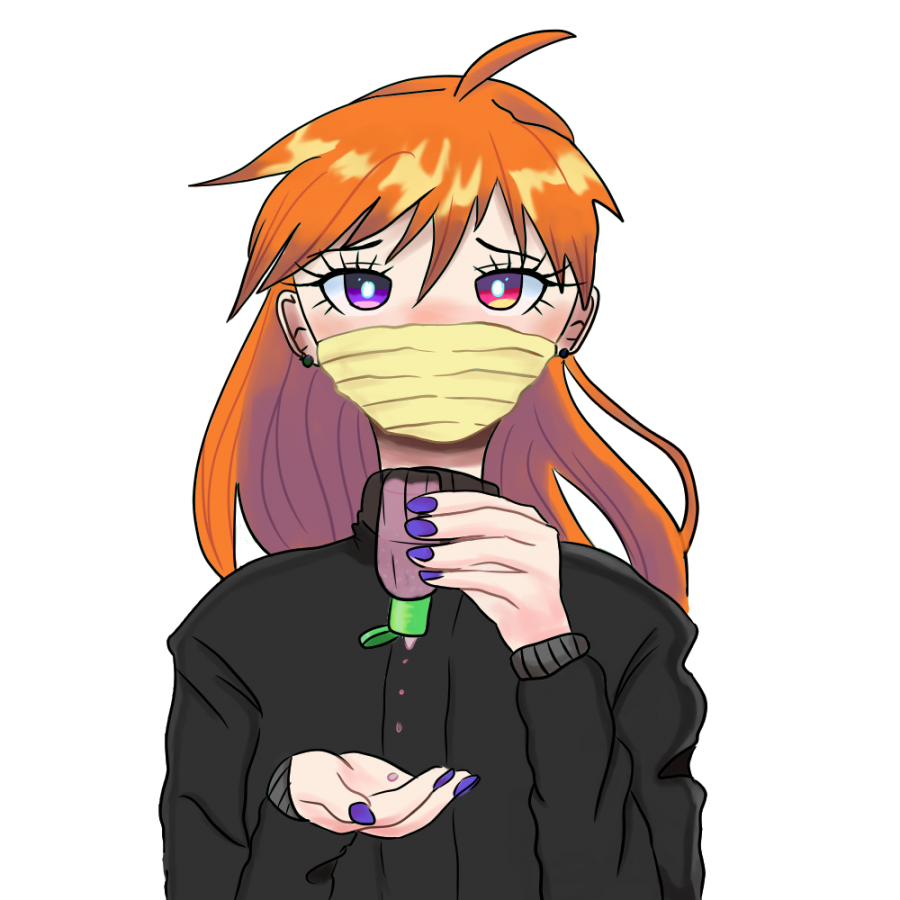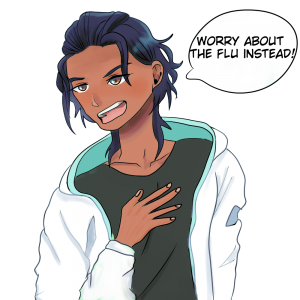Yes, it is a serious threat we should be worried about
The coronavirus has been declared a worldwide health emergency by WHO.
February 24, 2020
The coronavirus outbreak has been the most pervasive international story of the past few weeks. Beginning in Wuhan, China in Dec. 2019, COVID-19, better known as coronavirus, has spread exponentially in recent weeks with almost 12,000 cases in China. The United States has restricted entry of Chinese nationals as a precaution against the virus, quarantined any travelers from Wuhan for two weeks and worked day and night across the country to snuff out possible cases here in the U.S.
Many prominent pundits have argued that this is not a serious concern in the U.S., considering that almost all cases are outside the country, and the strain is not particularly dangerous when compared to more common viruses like the flu. However, disregarding virus outbreaks around the world is harmful, especially considering the ever-increasing prevalence of global travel.
While this case originated in China, likely from eating cuisine found in a wild animal market, governments in the U.S. and China are already taking precautions against the virus. China has quarantined over 50 million citizens in and around the city of Wuhan, closing schools in the area and halting most business. The U.S. has issued a strictest travel advisory against trips to China, advising Americans in China to leave as soon as possible.
These do not sound like precautions taken against a trivial matter.
One might point out that statistics regarding the outbreak are not as extreme as those of the flu, but this fails to recognize that the coronavirus is concentrated in a smaller area of the earth, and is not yet a virus pervasive throughout the world.
Furthermore, despite the high-quality care in Wuhan, a developed city, elders and people with health conditions are dying at a concerning rate. While some may argue that the virus is not a direct threat toward healthy individuals, catching the virus makes those around you extremely vulnerable.
In addition, the lack of worry for the elderly and children is ethically and morally untenable. There is no excuse for any flippancy toward this epidemic. Due to the lack of research regarding this new virus, there is also obviously no vaccine, meaning everyone, young and old, is susceptible to catching the virus. Meanwhile, there is realistic concern from the medical field that the coronavirus will evolve into a seasonal global illness, like the flu.
There is also the rising concern that the Chinese community government is downplaying the mortality and infection rate from the disease as they have an incentive to suppress the real statistics in order to maintain a facade of composure on the international stage. On December 30, Chinese doctor Li Wenliang first blew the whistle after identifying cases of the virus, and was reprimanded by the Chinese government and forced to denounce so-called rumors. He later died of the virus himself, after being among the few to combat the epidemic in its early stages. The Chinese government’s disregard for the initial information and ignorance to the virus’ severity naturally makes us wonder what else they are hiding from the public.
While there’s no need to panic—the coronavirus is not currently an imminent threat in the U.S.—that does not mean we are perfectly safe. Any virus outbreak starts with a few cases, and the benefits of taking a few extra steps to avoid a virus far outweigh the inconvenience it may cause.
The general sentiment about the coronavirus around RM seems apathetic. Freshman Nishan Abeywardena said, “I’ve heard of the confirmed cases, on the west, but not so much on the East Coast, so I’m not particularly worried.” Most people will not be concerned about a virus until it is close to home. However, we ought to remember that symptoms of a virus will not arise until after a latent period of a few days.
Confirmed cases are a good metric, but they are simply those which are reported and confirmed by a medical professional. This demands vigilance, not apathy. “I would feel like it poses a danger if there were confirmed cases in closer states, like Virginia, Pennsylvania, or Washington DC,” Abeywardena continued. We never know, one such case might arise tomorrow.
Protecting yourself against the coronavirus is as simple as preventing the flu, for now. Wash your hands often, and cover your mouth when sneezing.
As of Feb. 10, the death count is up to over 900, and that’s just what has been reported. This outbreak came from a lack of vigilance and caution about the constantly mutating virus. We have seen how stifling news of a virus has caused a mass outbreak in China. Let us not make the same mistake.



